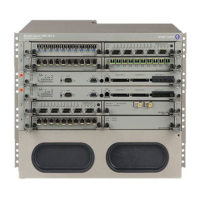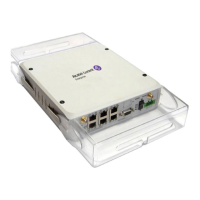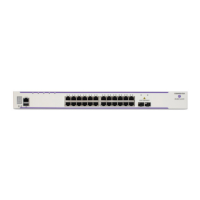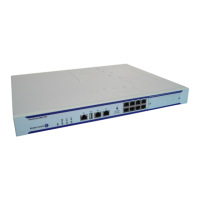Configuration Commands
Page 302 7750 SR OS Interface Configuration Guide
When a port scheduler is active on a port or channel, all queues and intermediate service schedulers
on the port are subject to receiving bandwidth from the scheduler. Any queues or schedulers with
port-parent associations are mapped to the appropriate port priority levels based on the port-parent
command parameters. Any queues or schedulers that do not have a port-parent or valid intermediate
scheduler parent defined are treated as orphaned and are handled based on the port scheduler policies
default or explicit orphan behavior.
The port scheduler maximum rate and priority level rate parameters may be overridden to allow
unique values separate from the port-scheduler-policy-name attached to the port or channel. Use the
egress-scheduler-override command to specify the port or channel specific scheduling parameters.
The command used to associate an egress scheduler policy on the port is overloaded for HSMDA.
HSMDA policies should be associated with HSMDA ports.
The no form of this command removes a port scheduler policy from an egress port or channel. Once
the scheduler policy is removed, all orphaned queues and schedulers revert to a free running state
governed only by the local queue or scheduler parameters. This includes any queues or schedulers
with a port-parent association.
Parameters port-scheduler-policy-name — Specifies an existing port-scheduler-policy configured in the
config>qos context.
elmi
Syntax elmi
Context config>port>ethernet
Description This command configures Ethernet Local Management Interface (E-LMI)parameters for the Ethernet
port. E-LMI is only supported on Ethernet access ports with Dot1q encapsulation type.
mode
Syntax mode {none | uni-n}
Context config>port>ethernet>elmi
Description This command configures the the Ethernet LMI mode.
Default none
Parameters none — Specifies that theE LMI mode is set to none.
uni-n — Specifies that theE LMI mode is set to uni-n.

